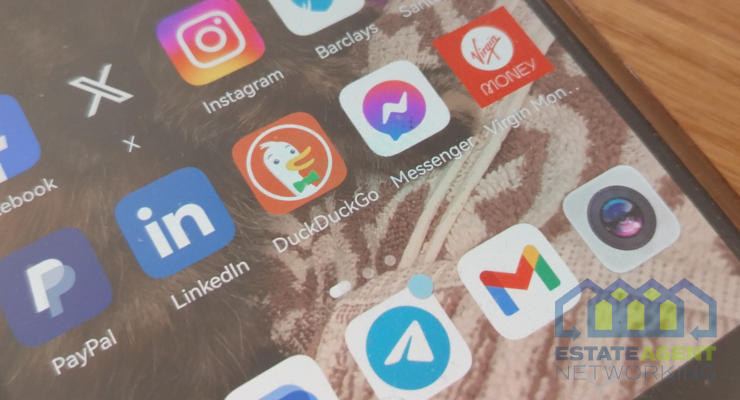10 Social Media Strategies Every Real Estate Business Should Know
Social media has become a dominant force in shaping how businesses interact with their audience. A real estate business, where connections and trust matter immensely, stands to gain significantly by leveraging social platforms effectively. The “breakdown of hours in your life by task social media” reveals just how integral these platforms have become, not only for entertainment but also for professional networking, marketing, and customer engagement. Let’s explore the top strategies that every real estate business must adopt to thrive in this digital age.
1. Define Your Target Audience Clearly
Understanding your audience is the cornerstone of any successful social media strategy. For real estate, this means identifying the specific demographic you want to attract. Are you targeting first-time homebuyers, luxury property seekers, or commercial investors?
Tips to Define Your Audience:
- Create buyer personas to map out potential clients’ needs and preferences.
- Use analytics tools like Google Analytics or Facebook Insights to identify audience demographics and behavior.
- Engage with your audience through polls and Q&A sessions to understand their expectations better.
By tailoring your content to meet your audience’s specific needs, you’ll not only increase engagement but also build trust and credibility.
2. Create Valuable and Consistent Content
The phrase “content is king” holds true in real estate social media marketing. Consistently sharing valuable content keeps your audience engaged and positions your business as an authority.
Content Ideas for Real Estate:
- Property tours (videos and images)
- Tips for first-time buyers or sellers
- Market updates and trends
- “Behind the scenes” posts featuring your team
- Neighborhood highlights showcasing local amenities
Incorporating abstract thinking can help you create out-of-the-box content that grabs attention. For example, instead of just listing property features, you could craft a story around how a family could experience life in the home.
3. Leverage Video Marketing
Videos are one of the most effective ways to grab attention and convey information. Platforms like Instagram, TikTok, and YouTube offer tremendous opportunities for video marketing.
Why Videos Work for Real Estate:
- Virtual property tours can attract buyers who cannot visit in person.
- Behind-the-scenes videos showcase your expertise and authenticity.
- Short, engaging reels can highlight unique features of a property.
Remember, the “breakdown of hours in your life by task social media” often shows that users spend a significant amount of time watching videos. Capitalize on this trend by delivering visually compelling content that showcases your properties and services.
4. Optimize Your Profiles for Discoverability
Every social media platform has search features that can make or break your visibility. Ensuring your profiles are optimized is crucial to attracting leads.
Steps to Optimize Profiles:
- Use relevant keywords in your bio, such as “real estate agent in [location]” or “luxury properties specialist.”
- Include a professional profile picture and a clear call-to-action (e.g., “Contact us to find your dream home!”).
- Link your website or lead capture form in your bio.
- Use hashtags strategically, such as #RealEstateLife, #DreamHome, or #LuxuryLiving.
5. Invest in Paid Advertising
Organic reach on social media platforms can be limiting, especially for businesses. Paid ads allow you to reach a larger, more targeted audience.
Platforms to Consider:
- Facebook Ads: Use for lead generation campaigns targeting local buyers.
- Instagram Ads: Perfect for visually stunning properties.
- LinkedIn Ads: Ideal for commercial real estate or high-net-worth individuals.
The real estate industry benefits immensely from mass marketing efforts, making this strategy similar to answering the question, “What Advantages Does Energizer Have with Mass Marketing?” It allows you to increase visibility, attract diverse clients, and build brand recognition at scale.
6. Engage Actively with Your Audience
Social media is a two-way communication platform. Engaging actively with your audience builds relationships and trust.
Engagement Tips:
- Respond to comments and direct messages promptly.
- Host live Q&A sessions about real estate topics.
- Share user-generated content, such as photos or testimonials from happy clients.
Active engagement humanizes your brand and shows potential clients that you value their input.
7. Utilize Analytics to Track Performance
You can’t improve what you don’t measure. Regularly tracking your social media performance helps refine your strategy.
Key Metrics to Track:
- Engagement rate (likes, comments, shares)
- Click-through rate (CTR) on links
- Follower growth
- Lead conversions from social media
Using tools like Hootsuite, Buffer, or built-in platform analytics can provide valuable insights into what’s working and what needs adjustment.
8. Collaborate with Influencers
Influencer marketing isn’t just for fashion or beauty brands; it’s highly effective in real estate too. Partnering with local influencers can boost your reach and credibility.
Steps to Collaborate:
- Identify influencers whose audience aligns with your target market.
- Offer them a free consultation or tour in exchange for promoting your services.
- Collaborate on content, such as live tours, neighborhood guides, or property showcases.
9. Incorporate Storytelling
Storytelling is a powerful way to connect emotionally with your audience. It’s more than just selling properties; it’s about selling dreams and lifestyles.
How to Use Storytelling in Real Estate:
- Share success stories of clients finding their dream homes.
- Highlight the history and unique features of a property.
- Use video to narrate a day in the life of a homebuyer or agent.
Abstract thinking plays a significant role in crafting compelling stories that evoke emotion and inspire action.
10. Stay Updated with Trends
Social media trends evolve quickly, and staying updated ensures your strategy remains relevant.
How to Stay Ahead:
- Follow industry leaders and competitors on social media.
- Experiment with new formats like augmented reality (AR) for virtual tours.
- Stay informed about algorithm changes and adapt your strategy accordingly.
Remember, the “breakdown of hours in your life by task social media” consistently highlights how much time people dedicate to consuming new and engaging content. By staying ahead of trends, you’ll remain in your audience’s feed.
Conclusion
Real estate businesses must embrace social media as an indispensable tool for growth and connection. From defining your audience to leveraging storytelling and paid advertising, these strategies provide a roadmap for success. As you refine your approach, keep the “breakdown of hours in your life by task social media” in mind to ensure you’re capturing your audience’s attention effectively.
What advantages does Energizer have with mass marketing? The same principle applies here—increased visibility and trust across a diverse audience. And don’t forget to use abstract thinking to create unique, captivating content that stands out in the crowded digital space. By following these strategies, your real estate business can thrive in the dynamic world of social media.









